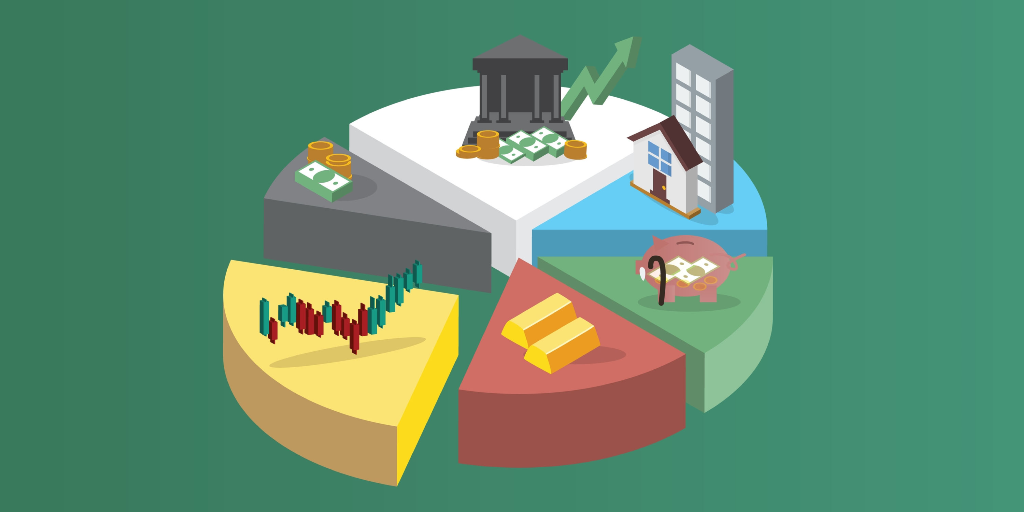The Difference Between Depreciating and Appreciating Assets

- The building blocks of generational wealth start with increasing your financial health.
- Appreciating assets and depreciating assets both play a role in gaining wealth.
- Knowing the difference between appreciating and depreciating assets can help you become more mindful while on your wealth-building journey.
The building blocks of generational wealth start with increasing your financial health. A few key building blocks to amass generational wealth is ownership. You can increase your financial portfolio by owning real estate, your own business, stocks, bonds, and other profitable assets.
Appreciating and depreciating assets are two types of assets that are particularly important in wealth management, so it pays to know the difference between them and how to get the maximum value from each.
Appreciating Assets
Appreciation is the name of the game for most investors. Appreciating assets increase in value over time, which investors appreciate (get it!). Importantly, this increase in value occurs not due to the investor’s efforts, for instance, pouring money into a house on renovations and upgrades. Instead, the appreciation derives from market condition factors outside the investor's control.
Appreciating assets tend to have a long life span. Land and precious metals, for instance, have an unlimited life in some sense and don’t ever disappear. Houses, likewise, are built to last decades, with the 30-year mortgage extended on most real estate transactions reflecting this reality.
Because appreciating assets tend to become more and more valuable with every passing year. Appreciating assets are often a core building block in increasing personal wealth and equity, also known as net worth.
A few examples of assets are:
- Tangible assets: gold, property, precious metals, fine art
- Financial assets: stocks and bonds
- Intangible assets: trademark or copyright
Recommended Read: How to Increase Your Assets
Advantages of Investing in Appreciating Assets
The main ingredients that cause appreciating assets to gain value are periodic payments such as interest earnings (or dividends) and capital appreciation.
Periodic Payments
Savings accounts, Certificates of Deposits (CDs), dividend-paying stocks, and bonds are all associated with periodic payments. The monthly interest payment, quarterly dividend payment, or semi-annual bond interest payment all come like clockwork, gradually growing the size of the account.
However, there is a second, less visible, and some might say, a more valuable factor contributing to the account size which is compound interest. Compound interest is essentially the interest earned on top of the interest already accumulating on the account.
Example of Compound Interest
Imagine that you have a bank account that has $100 in it, offering an interest rate of three percent. If interest is paid once a year, then at the end of the year, your account will have earned $3, increasing its value to $103.
In year two, the three percent interest rate will then be applied to $103, increasing the value of the account to $106.09. And so on. In this way, compound interest enables even small investments to achieve substantial growth over time.
Capital Appreciation
A second type of appreciation that investors seek out is capital appreciation. Capital appreciation is the rise in an asset’s price. The larger the increase in price versus the original purchase price, the larger the amount of capital appreciation.
For example, if an investor buys a stock for $50 per share and the underlying company's performance improves, causing the stock price to rise to $55, the investor has earned $5 in capital appreciation. Precious metals, such as silver or gold, and commodities, such as oil or agricultural products, also experience capital appreciation, especially during periods of inflation.
Capital appreciation can be driven by many factors that may include:
- A strong economy buoyed by low-interest rates or high job growth, for instance, can cause a general uptick in prices across the board across nearly all asset classes.
- Improved asset performance, such as a company outperforming its competitors, can drive capital appreciation.
Some of the asset classes that investors might purchase specifically for their capital appreciation value may include:
- Real estate investments
- Mutual funds
- Stocks or equities, especially non-dividend paying equities
- Commodities such as oil or precious metals
Recommended Read: How to Make Money Moves with a CapWay Debit Card
Depreciating Assets
Depreciating assets are the opposite of appreciating assets. Depreciating assets generally lose value over time. Some of the most common depreciating assets include a car, a truck (even a truck used for business), furniture, and electronic equipment such as a laptop or cell phone.

In addition to losing value over time, depreciating assets tend to have a short usable life span, typically around seven to ten years. Consider an old clunker of a car. While the car might be drivable for fifteen or even twenty years, it can cost more to repair the car than the car itself is worth. As such, from an accounting perspective, a twenty-year-old car has a depreciable value of zero.
A car can lose between 15% and 20% of its value each year. In addition, a new car will depreciate almost immediately after you drive it off a dealer's car lot.
The Benefits of Owning Depreciating Assets
Even though depreciating assets lose value over time, buying depreciating assets can provide financial and other benefits that make them a good decision.
For example, imagine deciding whether to buy a car or to continue depending on public transportation to take you to work or the grocery store. Public transportation like the city bus is cheaper, hands-down, but as you do the math, you realize it’s chewing up fifteen hours a week between getting up early, waiting for the bus, the hassle of finding a seat on a crowded bus, and the list can go on.

In addition to the commuting time that will be freed up with a car, you realize that you’ll be able to reach higher-paying job opportunities that are not within reach through public transportation. As such, even though it is a depreciating asset, in this instance, a car can be a valued asset in regard to your time.
Recommended Read: How to Earn Extra Income with Your Car
The Money Wrap-Up
Appreciating and depreciating assets both serve an important role in your financial portfolio. Knowing the difference between the two and how to use each one to its greatest effect can maximize their value as you build your wealth.